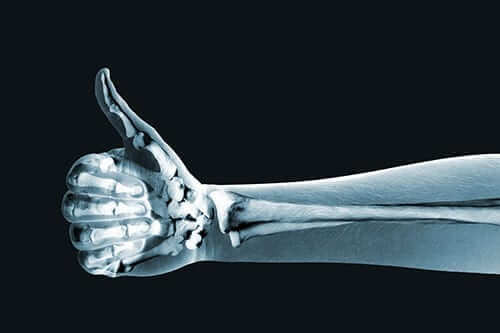Maintaining optimum bone health is a concern for people with type 1 and 2 diabetes. Proper nutrition and an active lifestyle are important to maintain healthy bones. Discover how to improve your bone health and ward off other potential health problems.
- Often people with type 1 diabetes have low bone density which increases the risk of fractures and osteoporosis. A large number of people with type 2 diabetes are overweight and prone to fractures despite the fact they have higher bone density. Certain diabetes patients have neuropathy and/or vision problems that could lead to balance issues. This makes them even more susceptible to injuries and fractures. It is crucial to take good care of your bones and overall health by adopting an effective diabetes self-management program.
- Good bone health starts with a healthy diet that includes plenty of fruit and vegetables, lean meats and fish, whole grains and low-fat dairy. Calcium is in foods such as fat free milk, low fat yogurt and salmon as well as broccoli, spinach and almonds. Try to consume up to 1200 milligrams of calcium each day. Get Vitamin D from foods such as low fat cheese, egg yolks and tuna as well as fortified cereals and milk. Include 600 IU (international units) of Vitamin D into your diet each day. Other ways to get essential Vitamin D include taking supplements and spending at least 10 minutes in the sun each day. Remember to use a sunscreen when you soak up those rays.
- Weight-bearing exercise is another way to build your bone strength. Jogging, biking and lifting weights will help to boost your bone health. If your exercise capabilities are limited chair squats and standing heel raises can also make a big difference. Talk to your doctor before starting any exercise regime. You may be entitled to physical therapy. An active lifestyle is a lifelong part of your diabetes self-management program and helps to preserve bone health. Regular exercise enhances flexibility and balance to reduce the chance of falling and breaking a bone. Exercise can also help lower blood sugar levels and help you maintain a healthy weight. Losing weight is a key factor in maintaining healthy bones. Use portion control plates to help you determine how much to eat at each meal.
- If your bone health is compromised it could lead to osteoporosis. With this condition, your bones are less dense and become more likely to fracture. Risk factors include not getting enough calcium, a small frame and a family history of osteoporosis. Also increasing the risk are smoking, drinking alcohol and a lack of physical activity. Women with amenorrhea, have an early menopause or who use medications such as glucocorticoids have a higher risk of developing osteoporosis. People with diabetes who have celiac disease have a higher risk of developing osteoporosis.
- Avoid habits such as smoking, which is bad for your bones as well as your heart and lungs. Women who smoke tend to go through menopause earlier, which brings on earlier bone loss. People who smoke also might absorb less calcium from their daily diets. Drinking alcohol is often associated with poor nutrition and may affect bone health. People who drink heavily also have an increased risk of falling. Do not smoke or drink alcohol to have the best bone health.
- Ask your doctor about taking a bone density test to help detect osteoporosis before a fracture occurs. All women over 65 and men over 70 should get a bone density test. Doctors often recommend people with diabetes get this test earlier. While there is no cure for osteoporosis, the doctor might recommend one of several medications to prevent and treat it.
Lifestyle habits and genetics both play a role in your overall bone health. People with diabetes can improve their bone health through proper diet, regular exercise and avoiding bad habits. A few simple changes can boost your bone health and overall well-being.







Leave A Comment